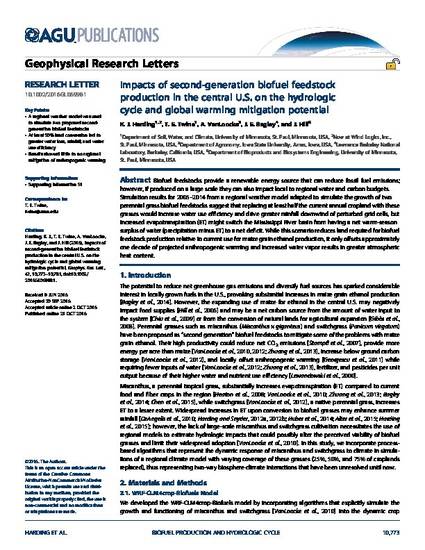
Biofuel feedstocks provide a renewable energy source that can reduce fossil fuel emissions; however, if produced on a large scale they can also impact local to regional water and carbon budgets. Simulation results for 2005–2014 from a regional weather model adapted to simulate the growth of two perennial grass biofuel feedstocks suggest that replacing at least half the current annual cropland with these grasses would increase water use efficiency and drive greater rainfall downwind of perturbed grid cells, but increased evapotranspiration (ET) might switch the Mississippi River basin from having a net warm-season surplus of water (precipitation minus ET) to a net deficit. While this scenario reduces land required for biofuel feedstock production relative to current use for maize grain ethanol production, it only offsets approximately one decade of projected anthropogenic warming and increased water vapor results in greater atmospheric heat content.
Available at: http://works.bepress.com/andy_vanloocke/22/

This article is from Geophysical Research Letters 43 (2016): 10,773, doi: 10.1002/2016GL069981. Posted with permission.